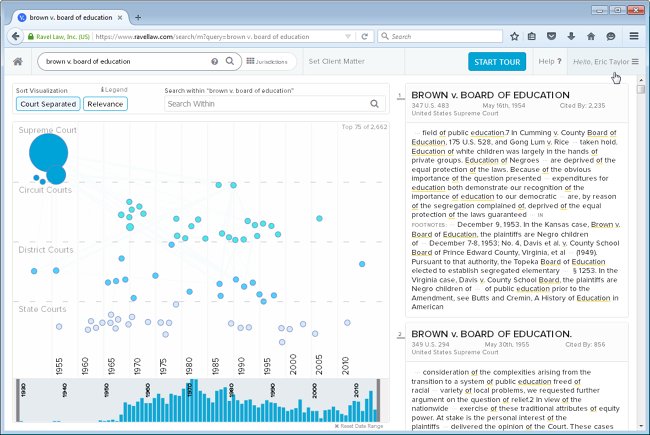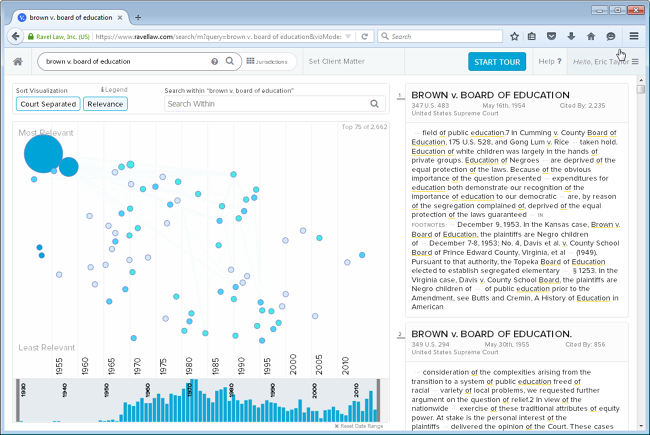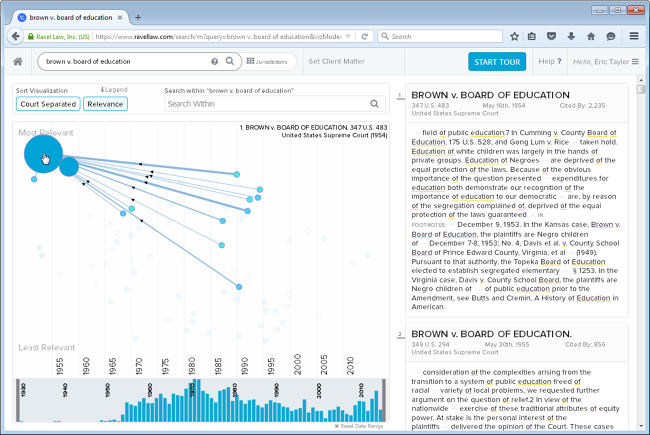The "Free the Law" initiative is an open access project designed to provide free access online to all of American case law. The Harvard Law School Library's collection of over 42,000 volumes will be scanned to provide digital access. The Library Innovation Lab, part of the Harvard Law School Library, is using high-speed imaging equipment that can scan half a million pages a week. Ravel Law, a legal research and analytics company, is providing the funding and platform for the project.
Case law for California is scheduled to come online this November. The full collection of case law nationwide is expected to be available online by mid-2017. A great deal is already freely available by going to www.ravellaw.com and signing up.
The dividends of such a project are huge, particularly, for the general public who have never had this level of access to American case law before. What makes this transformation from print to digital possible is the fact that the primary source documents Harvard is providing are in the public domain. Another important implication of this project is that by "using technology to create broad access to legal information will help create a more transparent and more just legal system" says Harvard Law School Dean Martha Minow.
Ravel Law will provide the platform for searching and reading cases online. Search results are accompanied by a feature called "Search Visualization" which derives a "case map" revealing important connections between cases such as their relevance, and the level of the court in which they were decided, providing additional access. When reading a case hotlinks connect to cases cited within that case so users can easily access them as well.
The three graphics below illustrate the "Search Visualization" feature described above when the search terms Brown v. Board of Education were used. The first graphic shows the "case map" in the "Court Separated" mode:

This second graphic shows the "case map" in "Relevance" mode:

The "case maps" can be manipulated to show deeper relationships between cases by hovering your cursor atop a particular case marked by dots on the map as shown in the next graphic:

Ravel Law plans to offer different levels of access. The plan described above is Open access and free to the public. Members of the law school community can get free educational access to Ravel Advanced which includes all the features of Open access, plus Case Analytics. This feature shows how each page in an opinion has later been cited by other cases and provides links to them. Additional plans offering more analytics and services for a fee are aimed at businesses and law firms.
Many thanks to the Harvard Law Library and Ravel Law for this groundbreaking work to "Free the Law."
Submitted by Eric Taylor, Evening Reference Librarian on November 17, 2015
This article appears in the categories: Law Library